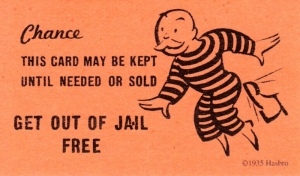‘Our Government Needs to Protect Workers, Not Corporations’JANINE JACKSON  Janine Jackson interviewed Jessica Martinez about worker safety and Covid relief for the December 18, 2020, episode of CounterSpin. This is a lightly edited transcript. Janine Jackson: “Coronavirus Relief Package Hits Snags Over Details,” ran a recent headline. One of those “details” was the health and safety of US workers, and their ability to protect them. As we record on December 17, it looks as though Congress will pass a package without the “liability shield,” as it was termed, that Mitch McConnell wanted, to “protect” businesses from Covid-related lawsuits brought by their workers. While that outcome beats the alternative, it's not cause for complacency. The measure McConnell wanted in, derived from a bill introduced in July by the Senate leader’s aide-de-camp, John Cornyn of Texas, that would exempt employers from enforcing a range of laws and standards, under the pretext of shielding them from frivolous lawsuits related to the pandemic. The bill was called the “Safeguarding America’s Frontline Employees To Offer Work Opportunities Required to Kickstart the Economy Act,” or, yeah, SAFE TO WORK Act. You could call that chutzpah, but “grotesque” might be a better word. With many years of experience in public health and worker rights, Jessica Martinez is co-executive director of the National Council for Occupational Safety and Health. She joins us now by phone from Los Angeles. Welcome to CounterSpin, Jessica Martinez. Jessica Martinez: Thank you so much, Janine, for inviting me. JJ: The measure that Republican senators, led by McConnell, wanted in this package reflected S.4317, the bill introduced by John Cornyn, which said at the time that it was aimed at “discouraging insubstantial lawsuits relating to Covid-19.” But what the proposal does, or will do if they're able to push it through at any point, is something very different than that, isn't it?  JM: Yes, it is. The so-called “corporate liability shield,” in the falsely named SAFE TO WORK Act, is a terrible idea, and absolutely should not be in our Covid relief bill. It's essentially a “Get Out of Jail Free” card for rich corporations, and it should not be in any legislation, ever. JM: Yes, it is. The so-called “corporate liability shield,” in the falsely named SAFE TO WORK Act, is a terrible idea, and absolutely should not be in our Covid relief bill. It's essentially a “Get Out of Jail Free” card for rich corporations, and it should not be in any legislation, ever.
If you or I do something negligent—let's say we have a bonfire in our backyard, and it gets out of control and damages our neighbor's house—we will be held accountable: Our neighbors could sue us, and of course we would be liable for the cost of damages to another person's property. Why should a corporation be treated any differently? Our government needs to protect workers, not corporations. JJ: So what made them think that somehow the pandemic gave them a special kind of rubric to push this through? What we heard was, “Golly, this is such a hard time for small businesses and for various companies, and the last thing they want to deal with is a rush of ‘insubstantial lawsuits,’” which of course, it didn't explain what “insubstantial” might mean. But, in fact, it actually is very, very broad; if you look, as you and few others did, actually down into page 55 of this SAFE TO WORK Act, it shows that it's actually much, much broader than a quick read might tell you, in terms of what it's letting employers off the hook for.  Jessica Martinez: "American workers are sick and dying and broke from this pandemic. So why on Earth would you suspend the very laws that are supposed to protect us?" JM: You’re right. This liability shield is worse than advertised. When we first heard about this “Get Out of Jail Free” card for rich corporations, the main feature was that companies cannot be sued over Covid-19 issues. But the language of the bill is much worse: It actually says there can be no federal enforcement of health and safety laws relating to Covid-19 issues. It also bans enforcement of other laws that protect workers, such as the Fair Labor Standards, age discrimination, civil rights. And American workers are sick and dying and broke from this pandemic. So why on Earth would you suspend the very laws that are supposed to protect us? Workers in our state and local governance should not be held hostage. As you know, this legislation is moving quickly in Congress, and there are a number of moving parts. Media reports indicate that Republicans may drop their demand for a liability shield if Democrats give up on funds to support state and local government. Well, this crazy idea to let companies off the hook for endangering workers should never have been in any legislation in the first place. And why should cities and states be held hostage? Local governments have been devastated by the pandemic because they have lost billions in tax revenues. If the GOP refuses to provide aid, they're defunding our schools, our hospitals, our transit systems—all services we desperately need during this pandemic. JJ: It's like basically saying labor law doesn't matter under this circumstance. So as I saw one write-up say, “OK, so if your employer breaks the Occupational Safety and Health Act by not protecting you, well, now you can't sue.” JM: That's right. JJ: If the grocery store says, “We're not going to pay you overtime,” you're going to work extra hours because of the coronavirus, you can't sue. It's a number of things that you might be able to bring action on, and the pandemic is being used as cover to say you can't do that. JM: And, currently, we know that OSHA has failed to protect workers. You mentioned OSHA, the Occupational Safety and Health Administration, which is tasked with protecting and enforcing worker health and safety rights in the workplace. This plan to cripple OSHA, just when workers need it the most, has to be placed in context. Up until now, the agency's response to Covid-19 has been totally inadequate. OSHA has been AWOL. The agency has medicine that could have been saved for workers’ lives, and they left it locked in the cabinet. By “medicine,” I'm not necessarily referring to a vaccine or treatment. I mean legal and regulatory authority. JJ: Right. JM: Authority to issue a temporary emergency standard, authority to conduct inspections, to issue fines, authority to publicize fines against companies, so other companies are encouraged to comply with the law. Getting into the numbers, about 11,000 worker complaints to OSHA have been submitted regarding Covid-19, and as of last week, just 279 complaints were opened; that's just 2.5%. Again, this legislation is worse, and could potentially completely destroy any protections for workers. JJ: And media often frame things as “workers versus employers,” but it's obvious that undermining workers’ health is socially harmful; it's not like anybody wins when people get sick at work and then bring it home to their community. And to your point about OSHA, Dave Jamieson at Huffpost was talking about how ignoring worker complaints, not doing inspections at this time, it's wrong anytime, but it's also a missed opportunity, because worker complaints tend to coincide with spikes in deaths. And so the complaints, as Jamieson put it, are a “missed opportunity” to intervene that OSHA could have taken. JM: That's right. And we know that the virus has spread from workplace hotspots into our neighborhoods and communities. Why would we ever let companies off the hook for such irresponsible behavior? Some companies have taken steps to reduce risk, with social distancing, PPE, good ventilation, rotating shifts and other measures. But this has also come about because workers have taken job actions, and have pressured employers into doing so. But some have been simply irresponsible. They have ignored common sense, public and occupational health measures, and allowed the virus to rage out of control in workplaces. Workers have become sick and many have died, and, in fact, the impact itself has been most severe on Black, brown and Indigenous communities who, in reality, are working some of the most high-hazard, dangerous jobs in this country. So it is quite tragic, and, again, it's terrible legislation. JJ: And then you read a report that says—this was Roll Call, but it could be anywhere—saying that Republicans want a liability shield “if employers follow basic federal health safety guidelines.” And so I think it's important to call out what counts as “compliance” in this vision. And the Los Angeles Times’ Michael Hiltzik was maybe the only person I saw saying, “Companies only need to say that they're ‘exploring options to comply with law,’” or that they looked into it, and it turned out they couldn't comply with safety policies, and that turns out to be enough. So that's the alternate. JM: Right. And that's coming from the LA Times, where there is, in California, a state plan, so essentially, protections are a little bit better than the federal standard. It's really just OSHA, in particular, again, has failed us in all accounts; when inspections do happen, they're weak and inadequate fines. Smithfield, a meat processing plant in South Dakota, had one of the worst outbreaks in the US. More than 1,300 infections, four workers died. OSHA inspected and fined the company only $13,000. Just a few thousand dollars for the life of each worker. That’s just $10 per infection. This is a multi-billion-dollar company. JJ: Yeah. JM: So it is really just a slap on the wrist, and it just sends out the message that employers can do what they want and get away with it. JJ: There's things that you can debunk, and I was happy to see Eli Rosenberg at the Washington Post debunk the idea that there's going to be this wave of unfair litigation. Well, there's not a wave of litigation, period. In fact, businesses themselves are a much larger source of litigation than employees. And there's a lot of harmful and debunkable myths like that. But I feel like there's a bigger lie about a necessary tradeoff, you know, that workers somehow have to choose between health and a paycheck, which, of course, is health, too. You know, this idea that this choice, “Oh it's harmful, but it's really necessary, because there's nothing else we can do.” I feel like that's kind of like the big picture lie that we're dealing with. JM: Right. And we've been doing this work, National COSH has been doing this work, for over 20 years. You know, we saw this coming. I mean, our work around ensuring that all workers have access to a healthy and safe workplace is deeply and intimately connected to other worker issues—whether it is a living wage, benefits, fairness—it's all interconnected. And these workers that we're now calling essential workers have always been essential workers for our country and our economy. And the reality is that it's terrible that we've been holding this relief package from workers for so long, a relief package that also does not even reach all workers that need the relief. We're talking about a lot of workers who—whether they’re immigrant workers, who many work in these high-hazard industries and are considered essential—are not getting economic relief. If they potentially get infected, there is no guarantee of a return to work, let alone paid sick leave. It's really tragic on all fronts and, again, our local COSH groups are doing everything that they can to advocate for workers to ensure that this bill does not pass. We urge listeners, your listeners, to call their senators and representatives to tell them that the wealthy irresponsible corporations do not deserve a “Get Out of Jail Free” card. The reports are accurate that this terrible liability shield will not be in the final legislation, but bad ideas like this have a way of coming back again. We need to bury this idea once and for all, because workers are getting killed on the job, and we have to do all we can to prevent it--not make it easier for companies to get away with murder, essentially. JJ: We've been speaking with Jessica Martinez. She's co-executive director of the National Council for Occupational Safety and Health. We're certainly going to be following this issue going forward, but right now, we'd like to thank you. They're online at COSHnetwork.org. Thank you very much, Jessica Martinez, for joining us this week on CounterSpin. JM: Thank you again for extending this platform. | 

No comments:
Post a Comment
Note: Only a member of this blog may post a comment.